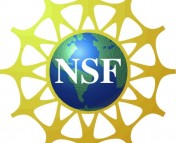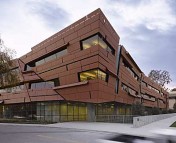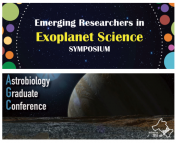In this post, some of the astrobites authors share their experiences applying for the National Science Foundation (NSF) Graduate Research Fellowship Program (GRFP). In a previous astrobite, we discussed the application process and materials. Applications for the 2012 fellowship are now open (at http://www.nsfgrfp.org/) and the deadline for astronomy is November 15th.
Ellie:
My officemate at the time was the first to read my essays and probably had the biggest impact (thanks Anna P!) She helped me structure my essays so that they presented my accomplishments clearly and concisely, such that a hurried reader would easily be able to get a sense of who I am and what I’ve done. The result was that my essays had a thesis, a conclusion and topic sentences for each paragraph. My advisors also read them; one memorable piece of advice they gave me is to say “I” instead of “we” when talking about my research project. I also asked an exoplanet expert to check the facts in the proposed research essay (who kindly obliged despite having only just met me).
On that subject – I wrote my project proposal on a different area of astronomy than I had done my undergrad research. That meant I spent a lot of time on astro-ph, familiarizing myself with totally new material; additionally, I made sure to point out that the skills I had learned were applicable to a new subject. I think that it would have been helpful to enlist the aid of someone familiar with exoplanets early on, but the benefit of going at it myself is that I really had to read the papers and think about what I thought would be interesting to study.
Lauren:
Research essay. I was working with David Charbonneau at the time, who is an expert on exoplanets. I started talking to him about the research essay before I began writing. He helped me outline an essay that addressed the current research in the field (i.e. the Kepler Mission) and proposed reasonable research goals. He also read through a couple of drafts and sent me comments. I think writing several drafts is really important, because everyone’s essays start out a little wobbly, and it takes a few tries to make an essay say what you want it to say. Also, having readers (both experienced, like D. Charbonneau, and less experienced, like a parent or roommate) is a huge help.
Broader impacts essay. I got some great advice from an NSF Fellow: hammer home everything you have done with “broader impacts.” Whether you teach in a classroom, throw star parties, give outreach talks, or write plays about dark matter. Talk about the number of people you have impacted (for me this number was over 1000!). A huge part of your job as an NSF Fellow is to promote science, astronomy, and your research to the general public, and so you should think carefully about everything you have done for the public so far and what more you can do while you are in graduate school.
Nathan Sanders:
Having been given a head start on thinking about the NSF application (thanks to the organizers of the SAO REU program), I spent a few months just outlining what I wanted to say in my research proposal, past experience, and personal statement essays. This may sound like a lot of time wasted, but in retrospect it was a valuable first step towards putting together all of the dozens of different essays I would eventually submit in my graduate school and fellowship applications that Fall. Looking back at my past research experiences, I decided that they told the story of my acquiring skills at different aspects of astronomy that could culminate in a doctoral thesis project that would tie them all together. I had long conversations with past and present research advisors designing such a unifying project that would allow me to highlight my existing strengths while also breaking new ground. I then asked my advisors and a few past professors to proof read my essays – everyone I asked was kind enough to take a look.
Maria:
My experience with the NSF application was likely far different than most on this page. To make a long story short, at the culmination of several events (including traveling for most of October, the Physics GRE falling three days before the deadline, and writing down the wrong due date for the application), I found myself with less than a week to write all of the essays.
Now, I would not recommend this tactic to anyone, but in my case my application was still successful. Looking back, I can can think of a few important points that made this possible:
(i) In my last few years of undergraduate I had written numerous applications for scholarships and REU programs as well as helping an advisor write a proposal for telescope time. It really is from trial and error that you learn what types of content and formatting (both are important) work best. So, if you are a younger student, apply for things like the Goldwater Scholarship. Along these lines: don’t be afraid to put bullet points in your essays! They make it MUCH easier for reviewer to grasp what you important points are in a very limited amount of time. There is nothing that makes a reviewer’s eyes glaze over more quickly than a solid page of very tiny text.
(ii) I was on very good personal terms with all of my recommenders. This was important for two reasons. First, when I found myself in a bind they were willing to edit essay drafts on very notice (don’t expect this, however) and second, it allowed them to write more enthusiastic and informative descriptions of my abilities. Your letters of recommendation are JUST as important as your essays and you need THREE. Ideally, you will have three people who can say concrete things about you besides simply your ability to do well in courses.
So, if any of you find yourselves in a situation similar to mine (i.e. a somewhat-less-than-ideal amount of time to write the application), I would recommend applying anyway. You may be successful, and even if you don’t win the fellowship this time around, the feedback from your reviewers (which the NSF provides to all applicants) will be invaluable for next time.
Nathan Goldbaum:
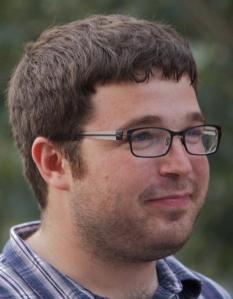
At the urging of my older officemates, I started to think about the NSF application at the beginning of my first year of grad school, a few months ahead of the deadline. That really helped, as it turned out I needed a lot of time to work on the essays. It’s important to make sure your language is as clear as possible, as your application will probably be in the middle of a very large stack. Be interesting.
The research proposal is probably the most important part of the essay. Take it seriously, and try to make it as interesting, professional, and well-written as possible. Spend some serious time on it. Clearly articulate how your proposed research would answer an important question or solve a longstanding problem. Your reviewers may not be astronomers, so try to be clear and keep jargon to a minimum. Be organized and break up your proposal into clear sections. Give your proposal a clever title. Clearly emphasize the main point of the proposal (I bolded it in my proposal). Try to make it easy to read, and if you can, try to make it fun, but still professional. Use citations and include a bibliography. It’s probably OK to make a bibliography compressed and in a smaller font if you are running out of space. Add a dedicated ‘Broader Impacts’ section discussing how you will incorporate outreach into your proposal. Use words and phrases from the ‘Broader Impacts’ criteria to make it easy for the reader to identify them. The rules also mention that you should include a statement attesting to the originality of the research, so you should do so.
In the previous research essay, discuss how the skills, knowledge, and habits you acquired during your previous research experienes prepared you for the proposed project. Be sure to mention any deliverables, particularly a paper. Keep in mind that any public code or data you helped make available is a community resource and counts towards ‘Broader Impacts’ requirements.
You should leave time so that as many people as possible can take a look at your essays. If you have any friends or family who work in a technical field outside of Astronomy, it would be great if these people could read it over to tell you whether your proposal is confusing. Fix the errors they point out. One last thing: Broader Impacts is equally important to Intellectual Merit, so don’t forget about it! Try to include Broader Impacts material in all three of your essays, if possible. Your personal experiences essay is a perfect place to discuss future plans for outreach.
Dan Gifford
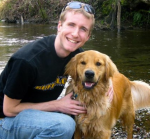 Like Nathan, I learned about the NSF Fellowship at the summer REU program at the SAO. Beginning the application, I was worried that as an undergraduate I had no chance without a future project to write about. However, it turns out that having a balanced application is more important than any one part. If you are applying as an incoming graduate student, play to your strengths as a researcher and student. If you have completed a research project, craft a future project that can use or further those results. Whether you are an incoming or current graduate student, the Broader Impacts essay cannot be overlooked. I will argue this is the most important part of the application. The NSF has a mission to further science, and one way is to invest in the science that you work on. However, if you show that by investing in you they are simultaneously investing in someone who can inspire others, your application will be very valuable. To wrap it up, ask everyone you can to read it over. Having input from faculty who have spent a lot of their careers writing grant proposals can only help!
Like Nathan, I learned about the NSF Fellowship at the summer REU program at the SAO. Beginning the application, I was worried that as an undergraduate I had no chance without a future project to write about. However, it turns out that having a balanced application is more important than any one part. If you are applying as an incoming graduate student, play to your strengths as a researcher and student. If you have completed a research project, craft a future project that can use or further those results. Whether you are an incoming or current graduate student, the Broader Impacts essay cannot be overlooked. I will argue this is the most important part of the application. The NSF has a mission to further science, and one way is to invest in the science that you work on. However, if you show that by investing in you they are simultaneously investing in someone who can inspire others, your application will be very valuable. To wrap it up, ask everyone you can to read it over. Having input from faculty who have spent a lot of their careers writing grant proposals can only help!
Tony:
Some general tips:

– In all likelihood, you’ll be applying for several fellowships. A good strategy is to spend most of your effort on a general statement-of-purpose, which you can show to your friends and advisers for feedback. Adapting a terrific general statement for specific fellowships will then take much less time. In my case, this also helped me find my voice, my call to arms, without the shackles of any essay prompt / guidelines.
– Start early. In fact, start now. For courtesy, give your friends & professors 1 to 2 weeks of buffer time to look over your essays. Plus, many fellowships have deadlines earlier than the NSF. For example, Hertz is always at the end of October. Sort of obliged to shamelessly plug the Soros fellowship here too – deadline’s 1st of November. So again, start now!
– Be concise. Say with confidence all you have to say, and no more than that.
– Remember, the ultimate goal of these institutions isn’t in funding graduate students. Their purpose is to fund future principal investigators, future citizen scientists. Write your research proposal accordingly.
– Back to the NSF; what about the Broader Impact criteria? This should be easy in astronomy, a science that the public is most curious about and inspired by. As a start, think about all you could (and should) do in education and outreach…


